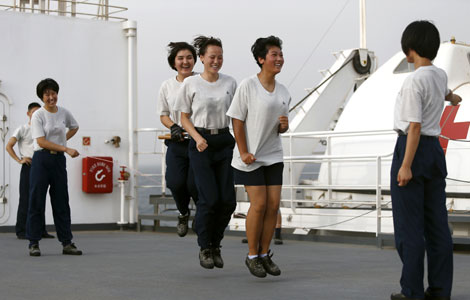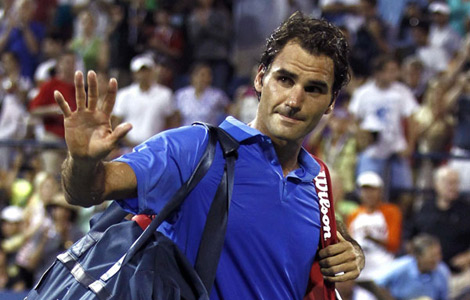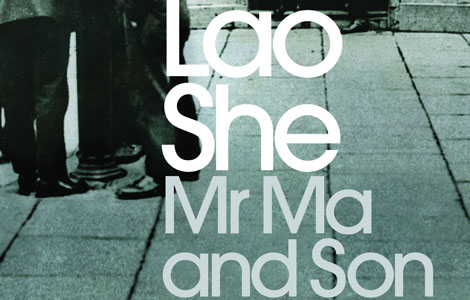Why 'entertainment soldiers' are here to stay
Updated: 2013-09-03 07:25
By Bai Ping (China Daily)
|
||||||||
Celebrity soldiers, beware! Tougher times may be ahead as the military top brass is set to curtail your pampered lifestyle force. To keep their members busy, military song and dance troupes will have to stage at least 100 performances a year for troops, according to a regulation issued by the General Political Department of the People's Liberation Army recently. The number of shows for drama and opera groups is 60.
In addition, the regulation bars those who still have energy left from performing abroad without prior approval, or moonlighting at private concerts or in bars. And in response to a public backlash against "singing generals", the regulation says prominent members of art troupes should no longer be called "generals", even though they enjoy some perks pertaining to the rank.
However, while appeasing discontented regular soldiers and officers who rue the preferential treatment meted out to celebrity recruits, the decision has not addressed a more sensitive public issue: If the stars are so difficult to manage, why not retire them altogether and save the money for more worthy military causes?
Critics say that although military song and dance troupes have boosted soldiers' morale during war times, they have become obsolete today, when a multitude of entertainment is available at the click of a mouse and the tastes of military and civilian audiences have begun to blend.
The military recruits celebrity performers, granting them privileges equal to high-ranking officers. But the performers continue to sell their services in the market. And in recent years, a number of famous military artists have given the military a bad name by being implicated in high-profile scandals.
Supporters, however, have brushed aside calls for abolishing the time-honored practice as "over-simplistic". They argue that despite corruption, the entertainment units are still indispensable, even at a time when the Chinese military is modernizing to improve its combat readiness.
While Western militaries count on religion and professionalism as the main source of their mental strength, the Chinese military uses literature and art for morale boosting, according to Gong Fangbin, a professor at the National Defense University of PLA. He says that several Chinese songs, popular both in and outside the barracks, have the power that no other education program could have in terms of soothing a soldier's soul and toughening him up in adversity.
One of them, A Little White Poplar Tree, rendered by a famous military singer equivalent in rank to a commander of an army corps, praises the selflessness of Chinese border guards. Another song, The Bloodstained Glory, reportedly first sung by a PLA war hero, eulogizes the bravery of soldiers willing to sacrifice their lives for the nation. And when it comes to troops' entertainment, Internet-enabled multimedia presentations can never match the thrill of seeing stars in flesh and blood. That is why the military has always insisted that its entertainers must perform for the troops on the frontlines.
For example, in May 2012, the military sent a song-and-dance troupe to Xisha Islands in the South China Sea to convey the nation's "regards and appreciation" to the troops garrisoned there. The troupe, reportedly comprising a tenor trained by Placido Domingo, a pop singing star and a Tibetan singer, entertained the soldiers, some of whom had been stationed on the islands for more than 16 years.
Another reason why the military is reluctant to let go of its retainer artists is the difficulty in sourcing entertainment programs from civilian providers. Besides being costly, the entertainment business is prone to be kitsch and materialistic, something the military has always been wary of because it wants to instill in soldiers and officers a more lofty value system with the help of its own entertainers.
Will the tough measures lead to an exodus of celebrity performers who may no longer be able to enjoy the best of the two worlds? Maybe. But the cleanup could just be another reason to justify the existence of the entertainment units.
The writer is editor-at-large of China Daily. dr.baiping@gmail.com
(China Daily USA 09/03/2013 page11)
Most Viewed
Editor's Picks

|

|

|

|

|

|
Today's Top News
Jiang Jiemin removed from office: authority
China on Syria: Follow the rules
Chinese applicants to US down
Police reveals more about GSK China's violations
'Jurassic Park 3D' atop Chinese box office
US Marines website hacked by pro-Syria hackers
Rousseff consults cabinet on US spy claims
President Xi leaves for Central Asia visit
US Weekly

|

|














